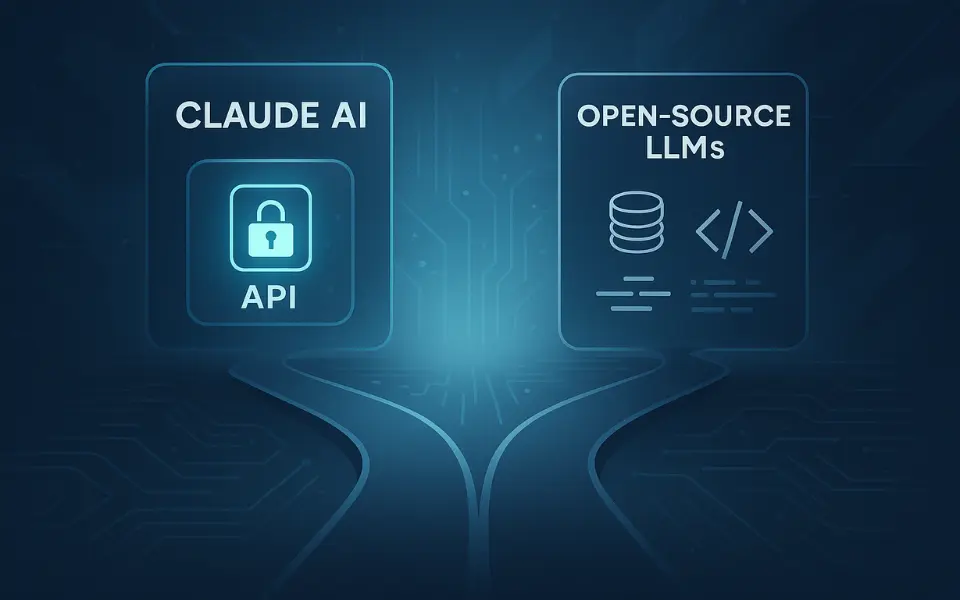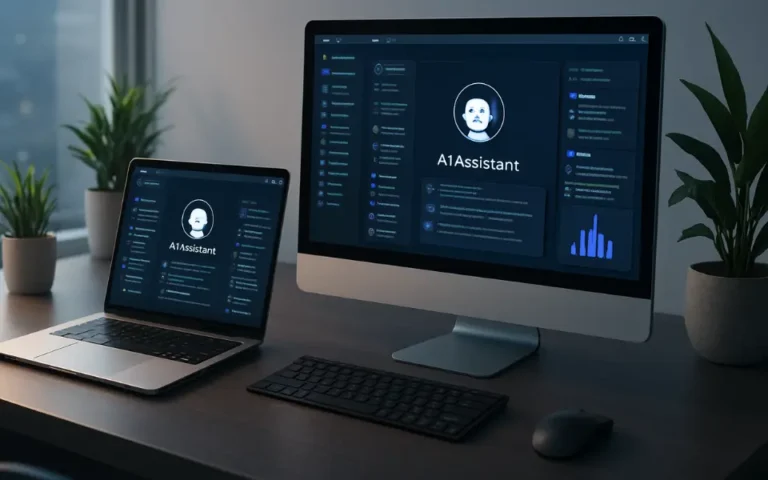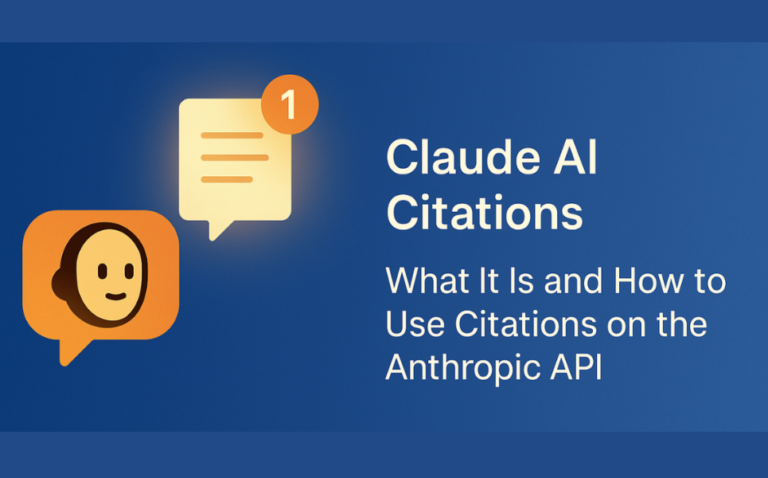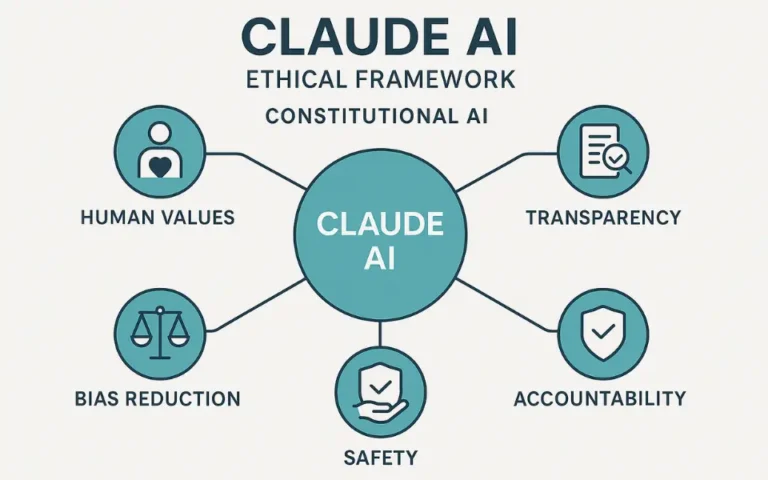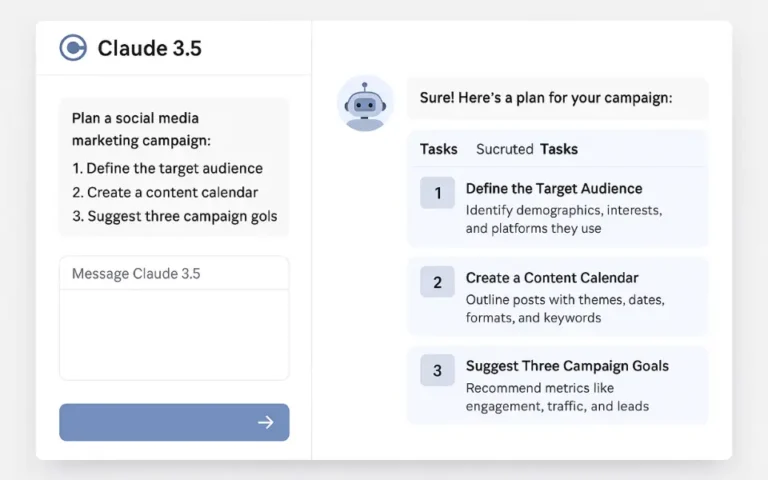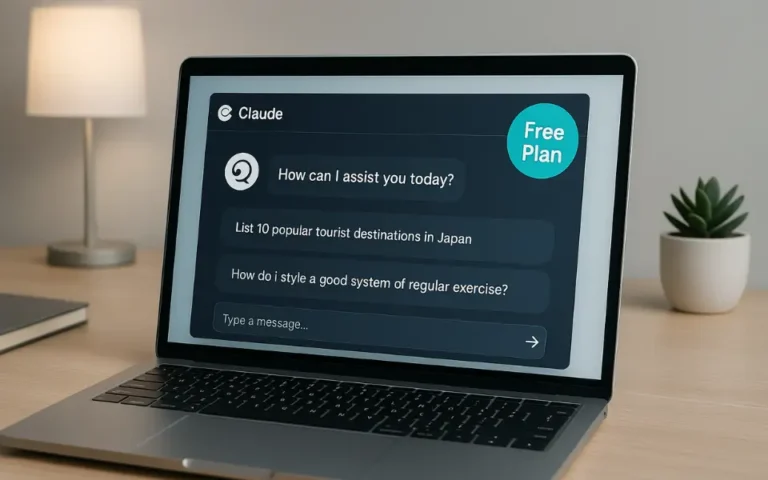Is Claude AI Open Source in 2025? Licensing, Alternatives, and More
The world of artificial intelligence is rapidly expanding, with new tools and models reshaping how humans interact with machines. One name making waves in this space is Claude AI, developed by Anthropic, a safety-focused AI startup. But as curiosity grows around its capabilities, another crucial question emerges: Is Claude AI open source?
This article provides an in-depth exploration of Claude AI’s licensing model, the concept of open-source AI, comparisons with other AI models like GPT and LLaMA, and why the open-source debate is critical in today’s digital age.
What Is Claude AI?
Claude AI is a conversational AI chatbot developed by Anthropic, founded by former OpenAI employees. It aims to create “helpful, harmless, and honest” AI systems using Constitutional AI, a unique method that focuses on safety and transparency.
Claude was built with an emphasis on alignment, ethical AI development, and the prevention of harmful outputs, distinguishing it from more openly trained large language models (LLMs).
Claude AI Key Features:
- Natural language conversations
- High contextual understanding
- Real-time interaction
- Based on Anthropic’s Claude language models (Claude 3.5 Sonnet, Haiku, Opus)
- Focus on safety and transparency
- Emphasis on safety via Constitutional AI
- Accessible via Anthropic’s API and platforms like Poe and Notion AI
Claude is accessible through the Anthropic API, third-party platforms like Poe, and integrations with services like Notion AI.
What Is Open Source AI and How Does It Work?
Before evaluating Claude AI’s status, let’s clarify what it means for an AI to be open source:
- Open source AI allows the model’s code, weights, architecture, or training data to be freely accessible and modifiable by the public.
- Developers can retrain, fine-tune, deploy, or analyze the models independently.
- It fosters transparency, reproducibility, and innovation across communities and institutions.
Key Characteristics of Open Source AI:
- Transparent architecture and model behavior
- Community collaboration and innovation
- Reduced vendor lock-in
- Accessibility for education, research, and development
Defining Open Source AI
Open-source AI refers to models whose source code, training data, model weights, or architectural details are made publicly available for use, modification, and redistribution. Developers, researchers, and enterprises use these models to build custom solutions without needing commercial licenses.
Examples of open-source AI models:
- LLaMA (Meta): Research-only license, not fully open for commercial use
- Mixtral 8x22B (Mistral AI): Apache 2.0 license for flexible use
- GPT-NeoX (EleutherAI): Open for research and development
- BLOOM (BigScience): Multilingual, community-driven model
Is Claude AI Open Source?
No, as of 2025, Claude AI is not open source due to safety and proprietary concerns.
Anthropic has chosen to keep Claude’s architecture, training data, and model weights proprietary. While Claude is available via API integrations and Anthropic’s own platforms, it does not offer access to the underlying code or model weights for public use.
Key Reasons Why Claude AI is Not Open Source:
1. AI Safety and Alignment Concerns
Anthropic’s top priority is AI alignment and safety ensuring AI behaves in line with human ethical norms.
Open-sourcing Claude could expose it to:
- Malicious fine-tuning
- Bias amplification
- Disinformation campaigns
2. Competitive Advantage
In a rapidly growing AI industry, keeping Claude proprietary helps Anthropic maintain market position against OpenAI, Google DeepMind, and Meta.
3. Ethical Concerns
Claude’s design is rooted in minimizing misinformation, toxicity, and bias. Limiting access reduces risk of unethical deployments.
Claude AI Licensing Model
Anthropic operates Claude AI under a software-as-a-service (SaaS) model. Access is provided via APIs and platform integrations, which are subject to:
- Usage-based pricing tiers
- Terms of service agreements
- Acceptable use policies
The model is aimed at developers, businesses, and organizations seeking conversational AI without access to underlying architecture.
Claude AI Accessibility:
- Available via API (with token-based pricing)
- Web-based usage through Poe and Notion AI
- No public GitHub repository or codebase
Claude AI vs Open Source Models
| Feature | Claude AI | LLaMA (Meta) | GPT-NeoX | Mistral AI |
| Open Source | ❌ No | ✅ Yes | ✅ Yes | ✅ Yes |
| Focus | Safety, alignment | Research & development | General public usage | Performance efficiency |
| Access | API only | Model weights downloadable | Open via HuggingFace | Community hosted |
| Use Restrictions | Commercial license only | Research use (mostly) | Flexible license | Open AI model licenses |
| Community Support | Limited | Extensive | Active open-source community | Growing rapidly |
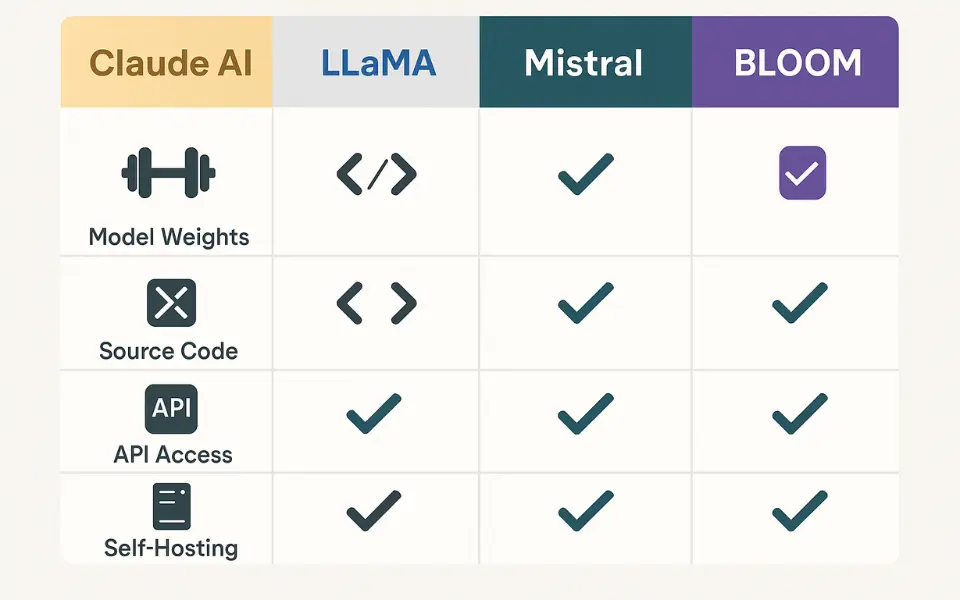
Why Isn’t Claude Open Source Like LLaMA?
Meta’s LLaMA is licensed for research only, with model weights leaked in 2023, enabling unofficial use. Claude, however, prioritizes controlled deployment to mitigate ethical risks, especially as 2025 regulations demand stricter AI safety standards.
Anthropic believes AI should evolve slowly and carefully, particularly as we approach AGI (Artificial General Intelligence).
Benefits of Keeping Claude Closed-Source
- Prevents misuse (e.g., deepfakes, spam bots)
- Protects brand integrity
- Allows safer updates and evaluations
- Controls the narrative around AI ethics
Community Access to Claude
While not open source, Claude is still accessible in several ways:
- API Access: Anthropic’s developer portal with tiered pricing
- Integrations: Claude is integrated in platforms like Notion AI and Quora’s Poe
- Chat Interfaces: Interactive demos on Anthropic’s website or Poe
Open Source Alternatives to Claude AI
If you’re seeking open-source conversational AI, consider:
- OpenChatKit by Together AI
- BLOOM Chat (multilingual)
- Vicuna (fine-tuned on LLaMA)
- Mistral-Instruct (chat-oriented Mistral variant)
These models allow community-driven innovation and experimentation—ideal for developers, researchers, or startups with specific use cases.
Will Claude Ever Become Open Source?
As of now, there’s no official indication that Claude will become open source. However, Anthropic may:
- Release technical papers on Claude’s performance and safety metrics
- Open-source smaller models for academic or educational use
- Offer sandbox environments to safely test capabilities
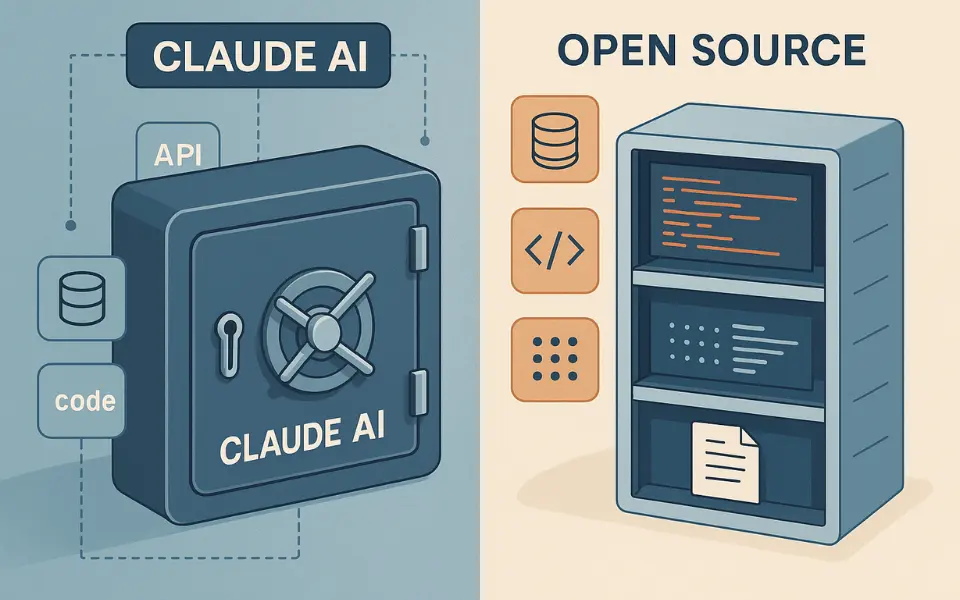
Much depends on regulatory trends, public demand, and competitor strategies.
Conclusion:
Claude AI’s proprietary nature in 2025 reflects Anthropic’s commitment to safety and ethical AI, aligning with growing regulatory focus on AI safet. Anthropic prioritizes AI safety through Constitutional AI, ensuring trust and responsible deployment over open-source accessibility. For developers and businesses seeking reliable chat AI, Claude’s API is a top choice, though it’s not open for customization. Explore Claude at Anthropic’s developer portal or check open-source alternatives like Mixtral on Hugging Face.
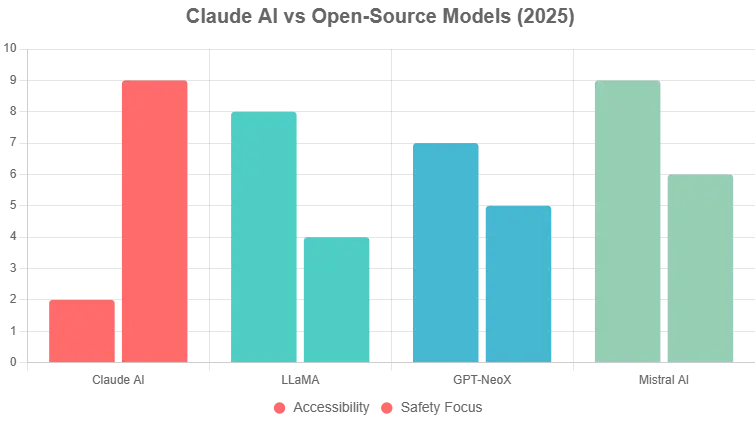
If your goal is innovation, transparency, or academic experimentation, you may lean toward open-source LLMs. But if your priority is safe, aligned, and commercial-ready AI, Claude remains a compelling option in 2025.

